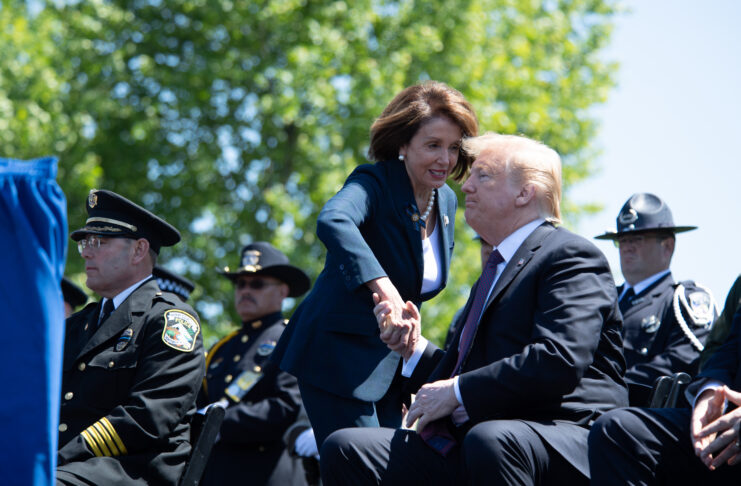While Congress plays its by-now ritualistic game of chicken with government shutdowns, it's important to back away from the stage players and look at the much bigger fiscal scene.
It's there we find a mess of growing size, complexity and risk – made all the worse because neither major political party is remotely serious about fixing it.
To get a sense of how deep the problems are, Reason's Nick Gillespie spoke with the Manhattan Institute's Brian Riedl about the government's current (and long-term) outlook. One possibility Riedl thinks might at least slow down our descent into the fiscal void is gridlock.
Yes, gridlock, where neither major party gets to call all the shots (to the chagrin of partisans everywhere).
But on fiscal matters, Riedl says gridlock has a lot going for it:
Historically, gridlock is the only thing that has reduced spending and deficits. I can go a little earlier to the 1990s when President [Bill] Clinton came in and spent his first two years trying to nationalize health care. It was a disaster. Newt Gingrich comes in 1994, and all of the sudden, the entire debate is over how to balance the budget. And four years later, the budget was balanced. Clinton was dragged kicking and screaming by Republicans into this. Similarly, as you mentioned, Obama in the first two years did about $1.5 trillion in stimulus bills plus Obamacare. And it was after Republicans took the House in 2011, the next six years were six of the best years we've had. There was very little expensive legislation passing. It was Boehner and Obama at each other's throats on spending, and you had legitimate deficit reduction.
And surprising no honest observer of Washington's spending follies, the modest fiscal restraint that had emerged died when Donald Trump rolled into town:
It kind of fell apart under Trump after Trump lost in 2020 because you had the pandemic. And also, the Trump Republican Party had changed so much that they were happy to team up with Nancy Pelosi to increase spending, even outside the pandemic. Like I said, even when Republicans had unified government, that version of the Republican Party was happy to make deals with Democrats that said, if you give us a 10 percent hike in defense, we'll give you a 10 percent hike in domestic discretionary spending. So, we went off the rails there.
That's being kind. The train left the track, rolled down the embankment and continues to careen across the countryside. And the major parties, while grudgingly acknowledging there's something amiss, categorically refuse to tackle the major drivers of federal spending: Social Security and Medicare.
Then again, because politicians live in mortal fear that even broaching the topic of entitlement reform will bring down the wrath of voters and the professionally aggrieved alike, they avoid the matter.
All of which leads Riedl to a rather gloomy prediction for how the world will look a decade from today:
We're going to be in a worse place just because I think deficits are looking to get much bigger—$2 to $3 trillion deficits. I don't see Congress going in the other direction. Things are going to get worse until either voters wake up or the financial markets cut us off. I'm really hoping it's the first option, that voters wake up, but I'm just not seeing it.
They may not see it. And a very large number won't care (so long as they get theirs – plus a bit more). But when the fiscal reckoning comes, none of them will be able to say they were warned.
The opinions expressed in this article are those of the author and do not necessarily reflect the positions of American Liberty News.
READ NEXT: Major Company Wants To Force You Into Diversity Training…


